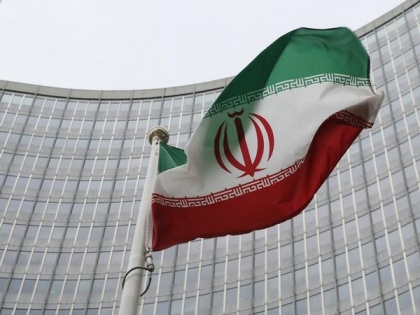IAEA inspectors not allowed to service surveillance equipment in Iran's Karaj
By ANI | Published: September 27, 2021 09:55 AM2021-09-27T09:55:37+5:302021-09-27T10:05:02+5:30
The International Atomic Energy Agency (IAEA) says its inspectors were not given access to surveillance cameras at Iran's Karaj centrifuge assembly facility, despite an agreement reached by the IAEA and Iran on allowing inspectors to service the surveillance equipment.

IAEA inspectors not allowed to service surveillance equipment in Iran's Karaj
The International Atomic Energy Agency (IAEA) says its inspectors were not given access to surveillance cameras at Iran's Karaj centrifuge assembly facility, despite an agreement reached by the IAEA and Iran on allowing inspectors to service the surveillance equipment.
According to an IAEA statement obtained by Sputnik on Sunday, the inspectors have been given access to "all necessary locations" this past week, except the Karaj facility.
IAEA Director General Rafael Grossi stressed that denying inspectors' access violates the September 12 agreement.
Grossi traveled to Tehran to hold negotiations with the chief of the Atomic Energy Organization of Iran (AEOI), Mohammad Eslami, earlier this month. After the talks, the sides issued a joint statement, in which they expressed willingness to maintain cooperation and agreed to allow the IAEA to replace memory cards in the surveillance system at the country's sensitive nuclear sites.
In 2015, Iran signed the Joint Comprehensive Plan of Action (JCPOA, or the Iran nuclear deal) with the P5+1 group of countries (the United States, China, France, Russia, the United Kingdom - plus Germany) and the European Union. It required Iran to scale back its nuclear program and severely downgrade its uranium reserves in exchange for sanctions relief, including lifting the arms embargo five years after the deal's adoption. In 2018, the US abandoned its conciliatory stance on Iran, withdrawing from the JCPOA and implementing hard-line policies against Tehran, prompting Iran to largely abandon its obligations under the accord.
EU foreign policy chief Josep Borrell and Iranian Foreign Minister Hossein Amirabdollahian declared their readiness to resume negotiations on the nuclear deal in Vienna as soon as possible, after meeting on the sidelines of the UNGA.
Last Tuesday, US President Joe Biden said that Washington was ready to return to compliance with the JCPOA if Tehran agrees to do the same. (ANI/Sputnik)
( With inputs from ANI )
Disclaimer: This post has been auto-published from an agency feed without any modifications to the text and has not been reviewed by an editor
Open in app